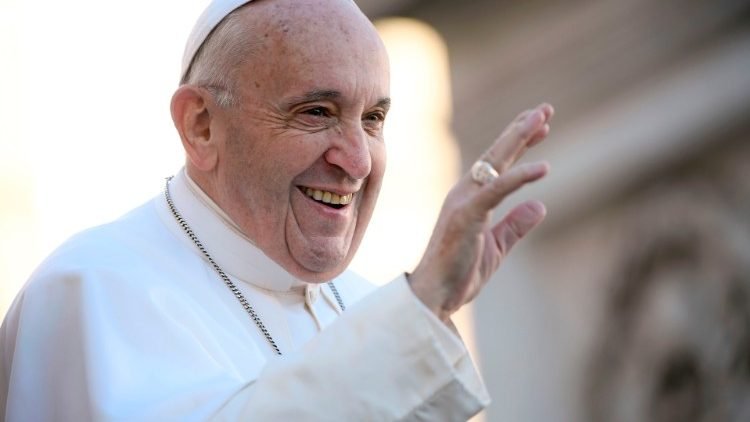As Pope Francis’ landmark Apostolic Exhortation Evangelii Gaudium turns ten, a conference in Rome considers its call to profound missionary conversion.
By Joseph Tulloch
A call to “give one’s life away for the poor.”
That’s how the Argentinian lawyer and activist Juan Grabois summarised Pope Francis’ Apostolic Exhortation Evangelii Gaudium, published ten years ago Friday and widely considered to have laid the foundations for the rest of his pontificate.
Grabois was speaking at a symposium organised by the Vatican’s Dicastery for Promoting Integral Human Development to mark the anniversary of the document’s publication.
Evangelii Gaudium: an ‘atlas’ for evangelisation
Cardinal Michael Czerny, the Prefect of the Vatican’s Dicastery for Promoting Integral Human Development, gave the first address at the symposium. He emphasised the “coherent development” of Pope Francis’ magisterium, from Evangelii Gadium (which means ‘The Joy of the Gospel’) to the later encyclicals Laudato si’ and Fratelli Tutti.
The “guiding thread” throughout this sequence, he said, has been “the missionary nature of the Church” – the recognition, that is, that the Church cannot remain closed in itself, but must enter into “dialogue and encounter with today’s world, fragmented and battered as it is.”
In an interview with Vatican News after the symposium, Cardinal Czerny reiterated this point. The significance of Evangelii Gaudium, he said, is that it “says once again what Jesus said … namely that for us to live our faith we need to bring the Gospel to the world.”
“We cannot live our faith in ghettos,” he stressed, “and behind closed doors, and even less behind walls. The world needs us, the world needs the liberation that Jesus offers, and Evangelii Gaudium is an atlas of the world that needs evangelization.
Listen to our interview with Cardinal Czerny
Giving one’s life for the poor
The next speaker was Juan Grabois, an Argentinian lawyer, professor and social activist.
The founder of a number of Argentinian workers’ movements, he suggested that Evangelii Gaudium “masterfully” expresses the Pope’s preferential option for the poor.
“I want to highlight the radicality of the approach,” he said. “It is a call to a full and profound conversion, which might even scare us because it repeats the Christian call to give one’s life away.”
“To leave behind our individual habits, our comfort zone, our daily opiates, to go out and look for the poor and excluded … This is not a simple option.”

The Symposium at the offices of the Dicastery for Promoting Integral Human Development
Evangelii Gaudium and synodality
Following these two interventions, the floor was opened to discussion from other attendees.
Sr Nathalie Becquart, Undersecretary at the Secretariat of the Synod, stressed that Evangelii Gaudium was “really foundational” for synodality.
At the 2018 Synod on Youth, she said, “All the methodology was based on what was written in Evangelii Gaudium”, in particular Section 51, which calls for “ever watchful scrutiny of the signs of the times.”
And, she said, when she is asked to explain synodality, she often refers to the four principles offered toward the end of Evangelii Gaudium: Time is greater than space, Unity prevails over conflict, Realities are more important than ideas, and The whole is greater than the part.
The Gospel and social movements
Italian activist Luca Casarini, meanwhile, suggested that Evangelii Gaudium ought to remind us of the unique contribution that Christianity can make to social movements.
While the Church is right to join others in campaigning for peace and justice, he said, it must not become simply an NGO. It must not be afraid, he said, to speak of the Holy Spirit.
In his encyclical Fratelli tutti, Casarini noted, Pope Francis emphasises that humanity is called to live together as siblings. But, he stressed, to look at the world – torn apart by war – this is far from obvious. It is rather, a conviction that stems from the Christian faith.
It is this conviction, this Joy of the Gospel, he said, that is the Church’s unique gift to the world.



